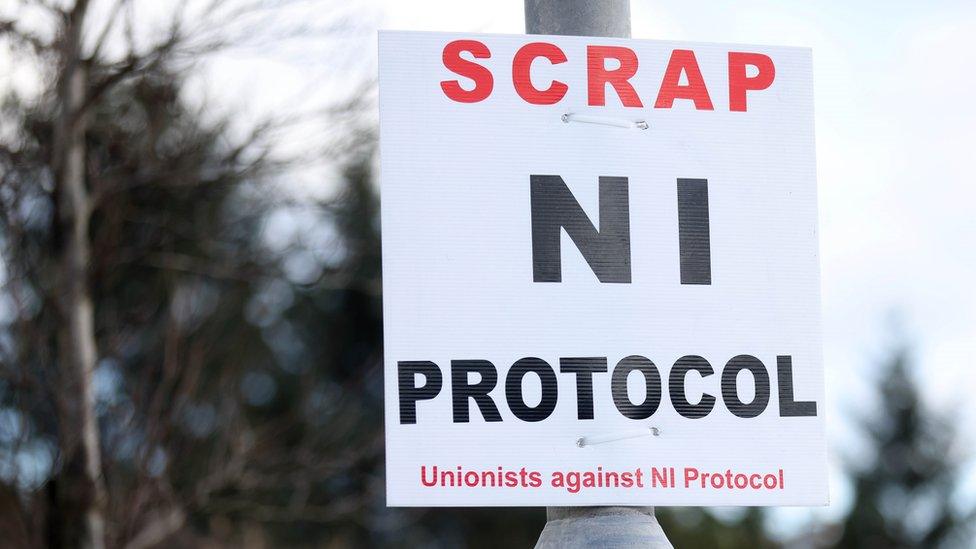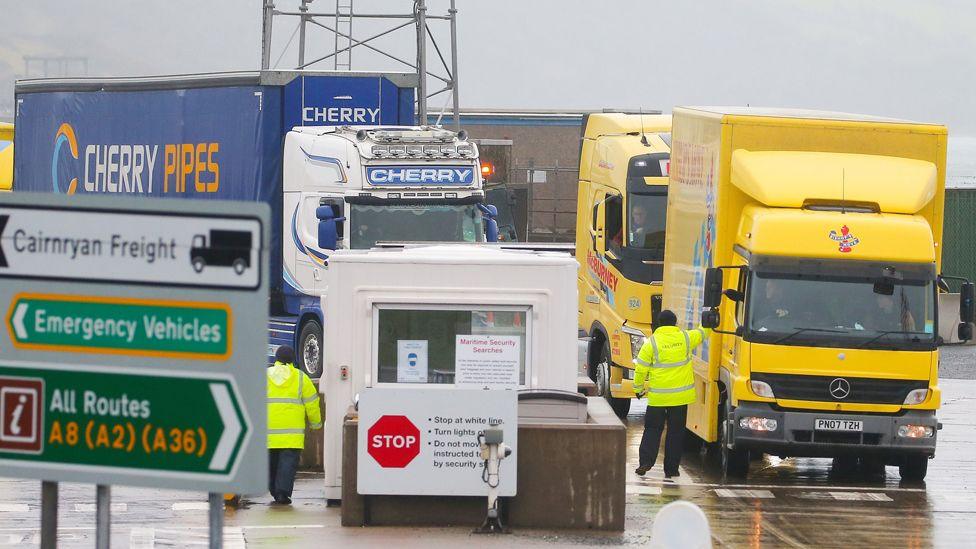Brexit: NI Protocol 'not shattering' for the union, court told
- Published

A group of unionist politicians are arguing that the Northern Ireland Protocol is unlawful
The fact that the Northern Ireland Protocol overrides part of the Act of Union is not "shattering" for the union, a government barrister has said.
Tony McGleenan QC was making submissions to the Court of Appeal in Belfast.
The court is hearing a challenge to the lawfulness of the protocol.
A group of unionist politicians claim it is unlawful as it conflicts with the Act of Union and the Good Friday Agreement.
Earlier this year the High Court dismissed their challenge on all grounds.
A judge ruled the protocol had lawfully overridden part of the Act of Union.
Mr Justice Colton found that the Withdrawal Agreement Act, which includes the protocol, conflicts with Article 6 of the 1800 Act of Union.
Article 6 concerns free trade between Britain and Northern Ireland stating: "The subjects of Great Britain and Ireland shall be on the same footing in respect of trade."
However, Mr Justice Colton said that where the Withdrawal Agreement Act conflicts with Article 6, then the Withdrawal Act was "to be preferred".
'Nothing unorthodox'
Mr McGleenan said the judge's ruling did not mean Article 6 had been repealed, but instead had to be read subject to the protocol.
He said there was nothing "heretical or unorthodox" about the idea that domestic law had to be read subject to international treaty obligations.
He added that the Act of Union was "intact" and in this case "the constitutional stakes are low if they are engaged at all".
On Monday, a barrister for the politicians told the court that the protocol had "impliedly repealed" Article 6, which was unlawful.
John Larkin QC focused on the Act of Union and said his "fundamental starting point" was that "there can be no implied repeal of constitutional statutes".
Mr Larkin said that legal precedents showed that repeal of constitutional law must be done expressly and that "general words" were not enough.
'There can be no implied repeal'
He rejected the argument that Article 6 was not repealed but merely suspended, saying the government was attempting to advance a "novel" concept.
Mr McGleenan took issue with the concept of "constitutional statutes" saying such a concept had never been recognised by the House of Lords or UK Supreme Court.
He added that the Supreme Court had taken care not to endorse a hierarchy of statutes.
Mr Larkin argued that Supreme Court judges had in fact recognised constitutional statutes and their special status.
The Appeal Court will deliver a reserved judgement. The Lady Chief Justice said it would come "as soon as possible".
Related topics
- Published2 February 2024

- Published29 November 2021
